
Nobody suffers alone
When Paige and Tate Lombard found out their baby was having heart trouble in the womb, they knew they had many, many hospital visits ahead of them. Not wanting expensive bills to cost them their baby, the couple’s town of Wall, Texas, raised more than $50,000 for medical care. With the Lombards out of town so often for hospital appointments, the community gave them hotel rooms and dinners, and covered their teaching shifts so they wouldn’t have to worry about unpaid leave.

They never wait for someone else to help
When the isolated town of Darrington, Washington, was hit with the deadliest mudslide in American history, locals didn’t wait for government officials before starting a full month of recovery efforts. Crews of loggers spent long hours in freezing rain searching for survivors and victims, and rebuilding roads, even after county rescue crews told them to leave. Meanwhile, other residents set up soup kitchens to feed those who’d lost everything they owned in the mudslide. “People here know responsibility, how to take care of themselves and their neighbors,” writes former resident Loretta Bedford. “They pull together in good times and bad.”

Everyone has each other’s backs
Dinah Stephens had just moved from a bigger city to Fargo, North Dakota, and was petrified when a car of teen boys started yelling at her while she was driving. One of the teenagers jumped out and approached her car at a stoplight. She made sure the doors were locked and braced herself—but the boy just replaced the gas cap she’d forgotten to replace after filling up earlier.

Love knows no distance
Amanda Keller moved away from Martinsburg, Missouri, in 2000. But 16 years later, when her hometown learned a rare autoimmune disorder had paralyzed her, the community still had her back. Churches from Martinsburg and nearby towns banded together to throw a chicken dinner fundraiser, collecting items like gift cards, quilts, and gift baskets for a raffle. All the proceeds went to Keller’s family to help with medical costs.
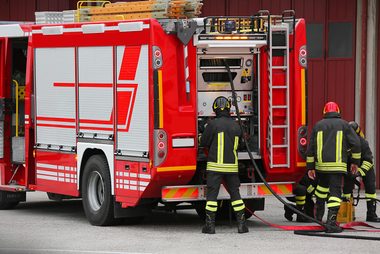
They always say ‘thank you’
Fires raging through the state brought a team of federal firefighters to Hayesville, North Carolina. The tiny town of just over 300 people, rallied together to make those crew’s selfless job as easy as possible. They donated sports drinks, water, lip balm, and more, plus made themselves available to lend a listening ear or a prayer. The firefighters received more than 2,000 thank-you cards. In a video thanking the town, one Oregon firefighter said it was “about the most hospitable state and county that I’ve ever been in.”
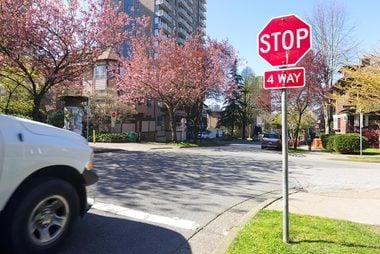
No one minds a slow pace
At four-way stop signs in Salida, Colorado, locals politely wave the other driver, cyclist, or walker, to go through first. In turn, that person waves to let that driver go ahead instead. “This ritual takes up more time than the electric red stop light on First Street,” writes John Farrell. Even so, everyone is patient and happy to spend a few extra moments before rushing on to their destination.

They never expect anything in return
An Indiana woman left her wallet at home in her rush to visit her mom, who had just been admitted to intensive care in Alabama. Out of gas with no money, she stopped for help at Jim Oliver’s Smoke House in Monteagle, Tennessee. The owner, James Oliver, listened to her situation, then gave her $200 without expecting a penny of it back. That kind of generosity isn’t uncommon for Oliver, who’s been known to give meals, money, lodging, and jobs to those in need.

When they don’t have money, they give time
During a house fire in 2009, Casey Butler and her family of six lost everything. But they weren’t empty-handed for long—other residents of Lexington, Texas, donated furniture, clothes, food, and more so they could restock their home. One local couple had nothing to donate, but asked if they could pitch in by decorating Butler’s daughter’s room. “I was touched,” writes Butler. “What this loving couple did with my daughter’s room was outstandingly beautiful.”

Strangers aren’t strangers for long
Sure, the Troy, Alabama, police department knows everyone in town by name and checks on the elderly when they’re sick, but this town doesn’t just look out for its locals. Even strangers get a friendly dose of kindness. Residents have been known to wave at strangers driving down the street or help out-of-towners having car trouble. Meanwhile, when first moving to Hixson, Tennessee,Vicki Roginsky was touched when neighbors stopped by to introduce themselves, a basket of homegrown fruits and veggies in hand.
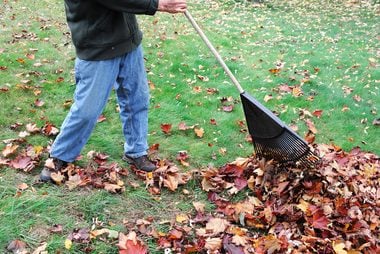
No one has to ask twice
Residents of Kaysville, Utah, are always willing to pitch in, even without much notice. One couple posted on Facebook that they needed some help with yard work. “A few days later, their yard was full of people who brought their own rakes and wheelbarrows to help out,” writes Terry Sheffield. In April 2017, one family lost a son, so neighbors collected money for a portrait of him. Within just two days—in time for the funeral—a local artist made a charcoal portrait of the son standing next to Jesus. Read about a veteran who paints portraits of fallen soldiers.
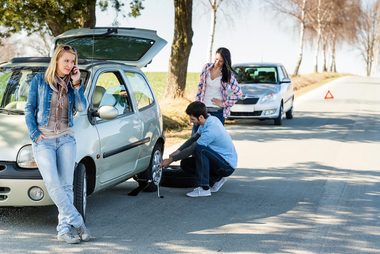
Random acts of kindness are the norm
In Gallatin, Tennessee, acts of kindness never go unnoticed. “Almost daily I observe a social media outreach where someone is saying thanks for the kindness of others—a police officer who helped change a tire, donations for a family in need, multiple returns of lost wallets and purses, help with home repairs, rides, meals, prayers, and on and on,” writes Paige Brown. One high school student even renovated a donated school bus so an autistic girl could use it as a playhouse.

They value morals over money
The beachside Ferris wheel in Pensacola, Florida, was a big money-maker, drawing huge crowds. Unfortunately, it also drew in baby turtles who mistook its bright lights for the moon and died on their way to it. Valuing baby turtles over money, authorities voted to remove the wheel to save some animal lives.
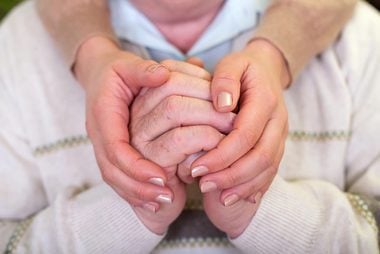
They bring out the best in people
When Bruce was diagnosed with early onset Alzheimer’s at age 54, his family was devastated. Bruce was a kind, quiet man before, but the disease made him stubborn and prone to anger, and he went through the family’s savings without them knowing. But when his wife reached out to Alzheimer’s Services of the Capital Area in Baton Rogue, Louisiana, things finally took a turn for the better. He started spending one day at week at Charlie’s Place Activity and Respite Center. “It gave him a purpose: fun activities, visitors, and a garden, which he loved,” writes his wife. When a flood forced the family to stay with a friend for four months, Charlie’s Place opened its arms to Bruce so his wife could have peace of mind while she was at work.
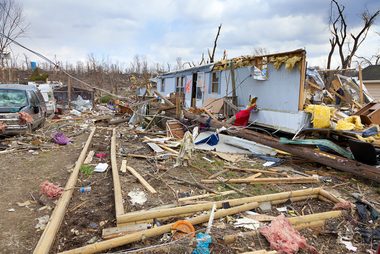
Every need is met
Tornadoes devastated Guntersville, Alabama, in 2011, leaving many residents homeless or with major damage to their houses. As churches from all over the country helped rebuild homes, the residents were not ignored. The Tyson chicken plant gave out free dinners, and restaurants would cook any meat that residents without power couldn’t cook. Dry cleaners washed clothes for free, and hotels let people shower with clean towels, without paying for a room.

They exceed expectations
When Michelle Bruce and her husband and son were all battling cancer, she decided to move back to her hometown of Franklin, Nebraska, with her family of six. Not long after the move, though, her son’s cancer came back for a third time. Most doctors said the tumor beyond hope, but one Boston doctor was confident she could beat the cancer for good. Unfortunately, the family’s insurance wouldn’t cover any of the $39,000 procedure. When a woman from town who Bruce had never even met heard of the family’s predicament, she offered to set up a fundraiser. Bruce was touched but said the costs were way too high for a 1,000-person-town fundraiser to put in much of a dent. Still, the woman insisted and put on a silent auction with live music and a meal. Back at home, Bruce got a call. “We have the money!” the woman told her. The event had raised $45,000—enough to cover medical costs, plus the trip to Boston.

They treat everyone like family
The small town of Silver Spring Gardens, Pennsylvania, is a retirement community, but it might as well be assisted living—residents constantly help each other. They’ll take out a resident’s dog when the owner is away, furnish apartments for newcomers who don’t have anything, and take each other shopping and to appointments, including seven-hour-long procedures. Together, they nursed a woman with a broken shoulder by helping her shower, cook, clean, and more.

They pay it forward
One Houston couple was having car trouble, when a truck pulled over. A Dalhart, Texas, resident changed the tire within seven minutes, then was on his way after refusing payment. On another trip, that same couple helped two men flag down a busy bartender. After the couple finished eating, the bartender said the men had covered their check. Turns out those men were from Dalhart, too.

They focus on the positive
In a world of Internet trolls and spiteful Facebook debates, theCHIVE.com from Austin, Texas, is killing with kindness. In addition to sharing heartwarming stories, funny cat pictures, and photos of adorable kids, the site heads some incredible fundraisers. Readers raised $250,000 in one day for a Navy veteran with a dream of owning a lakeside cabin; $100,000 in six hours for a two-year-old girl with severe brittle bone disease; $400,000 in two days for a woman whose cancer treatment triggered a neurological disease that paralyzed her; and, with the help of GoFundMe.com, $270,000 in two days to help a veteran with terminal cancer build a therapy cabin for those with PTSD.
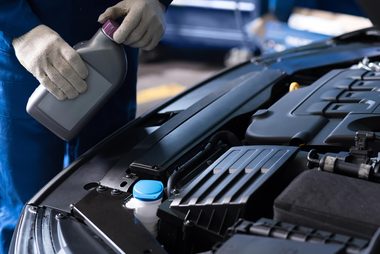
They find a permanent solution to fix a need
At South Whidbey Island in Puget Sound, Washington, residents don’t just help one person then step away. They create full organizations to address the problem that others are undoubtedly having, too. For instance, the town created a foundation to pay vet bills for pet owners who couldn’t afford it. It also has programs to help pay for cars, oil changes, and gas, and residents will sponsor others who need tutoring, medical help, or counseling.
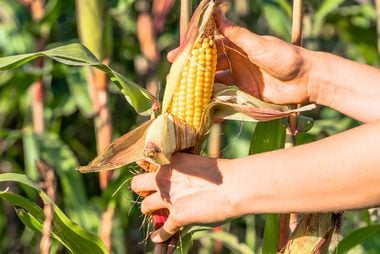
They help those who can’t help themselves
When a corn picker machine trapped the legs of Connie Herr’s father-in-law, no one could hear his cries for help in the farm town of Kirkwood, Pennsylvania. Finally, a man heard his yells over the hill and ran to his side. Even after the fire company and neighbors arrived, it took several hours to get him out. He needed his legs amputated. Hearing that he’d lost his legs, the Amish community helped him finish the work on his farm. They spent a full day picking the corn by hand until the job was finished.

They stay strong after a tragedy
Between three major floods and a large fire, about 4,570 families around the Austin, Texas, area were devastated between May 2015 and May 2016. With the help of Austin Disaster Relief Network, a network of more than 175 churches, those families were able to get back on their feet. One family of seven who’d lost everything in a flood, “shopped” at the organization’s thrift store to pick up free supplies. They shared that all seven had been sharing one toothbrush while sleeping in their cars, but a hygiene kit ensured they finally had enough for each family member.
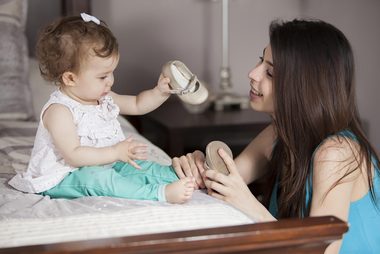
They make anyone feel welcomed
Soon after her daughter made the decision to attend Western Kentucky University, Becky Monroe and her family popped into a Bowling Green, Kentucky, dress shop. When the mother-daughter team running the store heard the girl would be attending that fall, they immediately opened their arms to her. They gave him their phone numbers, invited her for dinner after she started classes, and offered a babysitting gig or job at the dress shop if she needed extra money. “Sure, their offers were kind, but it was in the way they did it that left us all speechless. Their sincerity was so genuine,” writes Monroe. “By the time we left the store, we were all hugging and I was holding back tears.”
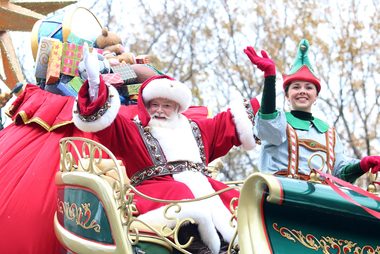
They make you feel special
When 21-month-old Eli Sims was diagnosed with liver cancer, the entire Clay County, Alabama, community rallied around the little boy. In addition to holding fundraisers and prayer meetings in Eli’s honor, they made him feel special. He was grand marshal of the Ashland Christmas Parade, and the Ashland Volunteer Fire Department deemed Eli and his two older brothers honorary firefighters. When Eli passed away at three years old, hundreds of people showed up to the funeral.

They don’t play finders-keepers
When a resident of Big Canoe, Georgia, saw a book on the side of the road, he didn’t just leave it there. He pulled his car over and tracked down the owner to return the reading material.
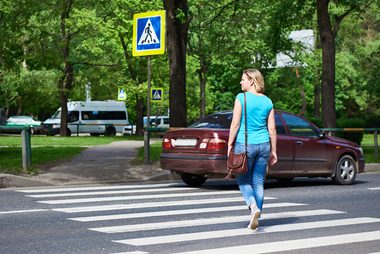
They are exceptionally polite
When Robin Harford was new to Ketchikan, Alaska, she paused on the main road, trying to figure out which way to go. As she looked up and down the street, she realized traffic had stopped on both directions. The drivers thought she needed to cross the street, and were smiling as they waved her across.
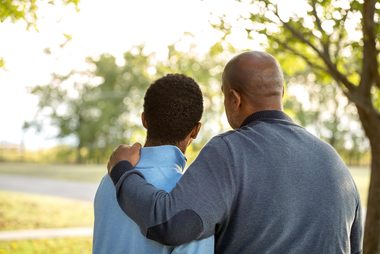
They’re your biggest cheerleaders
People join Toast of Petaluma, a Toastmasters club in California, to hone their speaking and leadership skills. But not long after joining, they all offer to help each other become better speakers and leaders, too. They act as mentors, making the trip to watch members participate in speech competitions.
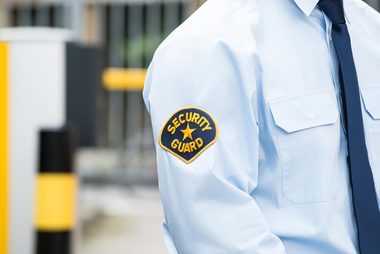
They feel like a sanctuary
John Fitzgerald was thought to have Asperger’s, but all through high school and college he was harassed for being “weird.” Academics weren’t hard for him, but socializing was. He dropped out and took a night shift working security for Ohio State University Medical Center to earn money for school, where he met a night admitting clerk. The woman let Fitzgerald vent, didn’t give him a hard time when he made mistakes, and helped him with his social skills. “It still amazes me what she did for me,” writes Fitzgerald. “Knowing I would hear her voice kept me going for a year.”

They encourage you to ask for help
The Facebook group “Pay it Forward, Evansville, WI!” pretty much sums up what this town is all about. Evansville residents post their needs, like leaving an abusive husband, recovering after a fire, borrowing a car, or setting up plumbing. Within days—or even hours—the page’s followers fulfill the requests.
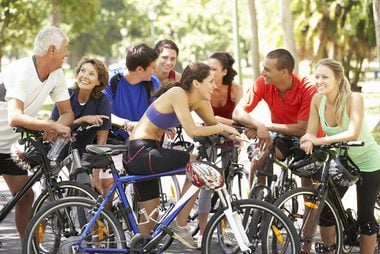
They accept people of all abilities
Local organizations, including a chapter of Benevolent and Protective Order of Elks Lodge, come together in Chester, California, every year for Randy Fossum’s Wheel Around Lake Almanor. At the event, people in wheelchairs because of quadriplegia, cerebral palsy, and spina bifida—and cyclists who aren’t in wheelchairs—take on a 34-mile endurance challenge around the lake. Money from the fundraiser helps locals living with disabilities.
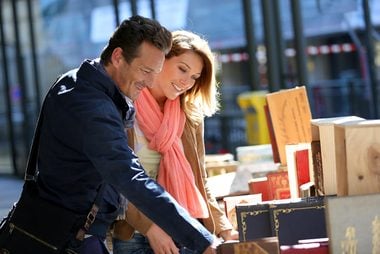
They value education
Local author Asadah Kirkland launched the annual Soulful Chicago Book Fair in 2015 to bring book lovers together. Authors, singers, puppeteers, workshop leaders, and more gather in an underserved Chicago neighborhood to celebrate reading and writing. When one little girl wrote a book about police, a group of officers asked to take a photo with her. “It was like she had her own little fan club,” says Kirkland.

Everyone knows each other’s names
From high school seniors to senior citizens, practically every local in Marietta, Georgia, loves visiting Biscuits and More. The owner, Chuck Morris, takes the time to stop and chat with every table. “He knows just about everyone by name,” says John Jefferson. “When you go there, you feel welcomed like a friend.”

They leave no room for worry
In Wauwatosa, Wisconsin, residents pick up their neighbors’ mail when they’re on vacation, and don’t brush it off if someone isn’t answering their phone. When a concerned daughter called worried that her mom wasn’t picking up, Eloise Schwarz checked in and assured the daughter her mom was just chatting with a friend across the street.